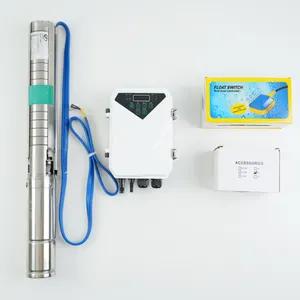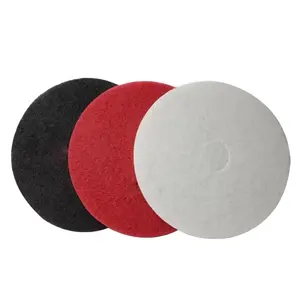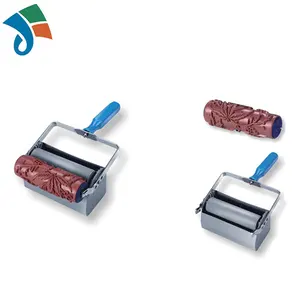Popular in your industry




































































Related Searches:































































































































Top categories
About fkm rubber seal strip
An fkm rubber seal strip is a pivotal element in a myriad of industrial settings, tasked with the crucial role of sealing against a spectrum of elements including fluids, gases, and dust. These strips are integral to the integrity of a diverse range of machinery, vehicles, and structures. Crafted from fluorocarbon rubber, the fkm rubber seal strip boasts exceptional resistance to elevated temperatures, a plethora of chemicals, and various oils, rendering it an adaptable option for a host of sealing predicaments.
Types and Characteristics of FKM Rubber Seal Strips
There exists a plethora of types of fkm rubber seal strips, each tailored with distinct characteristics to serve specific industrial requirements. Oil seals are indispensable in averting lubricant escape, particularly in machinery with rotating shafts. Mechanical seals are vital for maintaining pressure and halting fluid leaks in devices such as pumps and mixers. Security seals are employed for tamper evidence, whereas plastic seals present an economical option for less rigorous applications. Seal kits compile an assortment of seals for designated machinery, and cable seals are utilized to secure and seal cables. Each variant is meticulously crafted to fulfill the demands of its application, considering factors like pressure range, chemical compatibility, and resilience to temperature fluctuations.
Structure and Operation of FKM Rubber Seal Strips
The structure of an fkm rubber seal strip is ingeniously engineered to deliver peak performance. A typical strip might incorporate a core of stainless steel or PP plastic to ensure structural integrity and shape preservation. Encasing this core, the FKM material constitutes the sealing interface, adeptly designed to engage with the application's counterpart surface. The seal functions by adapting to the irregularities of this surface, forging a blockade that impedes the transit of fluids, gases, or particulates. This amalgamation of elements equips the seal to endure substantial pressure disparities and environmental rigors.
Materials and Properties of FKM Rubber Seal Strips
The materials selected for fkm rubber seal strips are distinguished by their superior attributes. FKM, or fluorocarbon rubber, is the material of choice due to its robust resistance to heat, oils, and chemicals, making it ideal for unforgiving environments where lesser materials would fail. Reinforcements like stainless steel confer added durability and resist deformation under duress. PP plastic is frequently chosen for its pliability and chemical steadfastness. These materials coalesce to forge a seal strip that is not only enduring and persistent but also adept at preserving its sealing efficacy under extreme conditions.
Business Usages and Applications of FKM Rubber Seal Strips
In commerce, fkm rubber seal strips find applications across a broad spectrum of sectors. Within the automotive industry, they are instrumental in sealing components such as doors, windows, and engines, thereby enhancing vehicle durability and performance. In the realm of heavy machinery manufacturing, these seals shield intricate internal mechanisms from dust and moisture. The aerospace sector depends on them for sustaining cabin pressure and safeguarding sensitive apparatus from the rigors of flight. Each utilization of the seal capitalizes on its properties to bolster business value by augmenting product functionality and dependability, which in turn leads to diminished maintenance expenditures and heightened customer satisfaction.
Functions of FKM Rubber Seal Strips
The primary function of an fkm rubber seal strip is to establish a steadfast seal that precludes fluid leakage and the intrusion of undesirable substances. Within hydraulic systems, they are essential for preserving the requisite pressure for smooth operation. In electrical housings, they thwart moisture and contaminants from inducing short circuits or corrosion. The adaptability of these seals permits their application in static contexts, such as window sealing, as well as in dynamic scenarios, like sealing rotating shafts in motors.
Features of FKM Rubber Seal Strips
Distinctive features of fkm rubber seal strips include their unparalleled resistance to extreme temperatures, enabling their function in conditions that would compromise other materials. Their broad chemical compatibility allows for their deployment in a variety of industrial processes without deterioration. The hallmarks of these seals are their longevity and the assurance they provide, making them a preferred selection for applications that demand a high level of dependability.
Benefits of FKM Rubber Seal Strips
The benefits of employing fkm rubber seal strips are numerous. They offer an economical sealing solution by virtue of their extended service life, curtailing the frequency of replacements. Their robustness guarantees that machinery operates at peak efficiency, which translates to enhanced productivity. For end-users, this equates to reliability and confidence, knowing that their equipment is shielded from potential malfunctions due to seal deterioration.
How to Use, Choose, Clean, Maintain, and Install FKM Rubber Seal Strips
Optimal functioning of an fkm rubber seal strip commences with the selection of an appropriate seal for the task, taking into account aspects such as size, type, and material compatibility. Installation demands meticulous attention, ensuring the seal is correctly positioned without distortion. For upkeep, routine checks are advisable, and cleansing should be executed with solvents that are safe for the material to prevent damage. When wear becomes apparent, prompt replacement is imperative to uphold the seal's integrity.
Target Audience and Needs for FKM Rubber Seal Strips
The target audience for fkm rubber seal strips spans industries where dependability and efficacy are paramount. This includes the automotive, aerospace, oil and gas, and manufacturing sectors. The product caters to the exigencies of engineers and maintenance experts who demand seals capable of withstanding arduous conditions without the need for regular replacement. By offering an array of types and materials, these seal strips meet the specific preferences and demands of a varied clientele.
What are the key considerations when integrating FKM rubber seal strips in machinery?
Integrating fkm rubber seal strips into machinery necessitates a thorough evaluation of the seal's compatibility with the contact materials, the environmental conditions it will face, and the mechanical stresses it will endure. It is also critical to ensure that the seal strip is of the appropriate size and profile for the application to avert failures and guarantee an extended service life.
How do environmental factors affect the performance of FKM rubber seal strips?
Environmental variables such as temperature extremes, UV radiation, and the presence of corrosive chemicals can markedly impact the performance of fkm rubber seal strips. The inherent resistance of FKM to such adversities renders it an excellent choice; however, it remains crucial to select a seal that is expressly designed to withstand the specific environmental challenges it will encounter.
Can FKM rubber seal strips be customized for unique industrial applications?
Indeed, fkm rubber seal strips can be tailored to suit unique industrial requirements. Customization options encompass non-standard dimensions, distinctive color coding for easy identification, and fortification with materials such as stainless steel or PP plastic to amplify certain attributes like tensile strength or flexibility.
































































